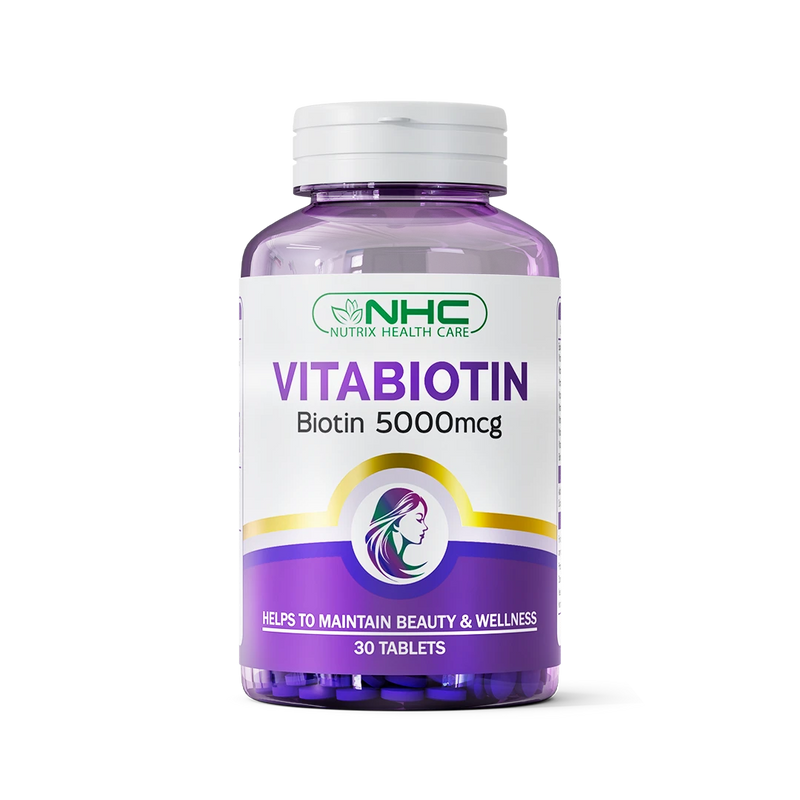How to Tell if You Are Deficient in Vitamin B Complex?
The body needs a combination of essential nutrients known as B-complex vitamins to function effectively. These vitamins are vital for maintaining various bodily functions, including nerve function, brain health, and DNA synthesis.
A deficiency in any of these vitamins can lead to various health complications. That is why it is important to identify them to support your overall health. Read the blog to learn why B vitamins are important, their deficiency symptoms, and dietary sources.
What is Vitamin B Complex?
B vitamins are a group of 8 different types of vitamins collectively known as the “Vitamin B Complex”. These are considered essential nutrients your body needs for optimal health and wellness.
- Thiamine (B1)
- Riboflavin (B2)
- Niacin (B3)
- Pantothenic acid (B5)
- Pyridoxine (B6)
- Biotin (B7)
- Folate (B9)
- Cyanocobalamin (B12)
Why is Vitamin B Complex Important?
Each of these vitamins plays a crucial role in the body. They are essential for supporting various body functions, maintaining cell health, and energising you. Every vitamin is vital and unique in its function, such as:
- Thiamine (B1) helps the body convert glucose into energy and supports nerve function.
- Riboflavin (B2) is involved in energy metabolism and improves eye and skin health.
- Niacin (B3) is essential for converting food into energy. It supports the nervous and digestive systems.
- Pantothenic acid (B5) is required for producing new coenzymes, fats, proteins, and hormones.
- Pyridoxine (B6) helps the body turn food into energy, supports neurotransmitter production, produces red blood cells and supports the immune system.
- Biotin (B7) is essential for healthy hair, nails, and skin. It is involved in carbohydrate, fat, and protein breakdown, cell communication, and DNA synthesis.
- Folate (B9) is necessary for producing red blood cells to carry oxygen throughout the body. It is critical for the fetal nervous system, DNA synthesis, and cell division.
- Cyanocobalamin (B12) maintains the myelin (an insulating layer around nerves), supports brain functions, and improves energy production.
Symptoms of Vitamin B Deficiency

Symptoms of deficiency may vary depending on which B vitamin you are deficient in. However, some common symptoms include:
- Feeling irritable and fatigued
- Experiencing nausea, vomiting, or diarrhoea
- Reduced hunger and weight loss
- Sore mouth or tongue
- Pale skin and anaemia
- Numbness or tingling in your hands and feet
- Vision issues
- Reduced mental activity
- Depression and anxiety
How to Prevent Deficiency?
Vitamin B deficiency can be managed by eating a well-balanced diet and choosing the appropriate supplements.
Vitamin B-Rich Foods
Some food sources that help you boost Vitamin B levels are:
- Leafy vegetables
- Liver and other organ meats
- Eggs
- Milk and yoghurt
- Chicken and turkey
- Fortified cereals
- Fish like (trout & salmon)
- Grains and legumes
- Nuts and seeds
Choosing the Right Supplements
It can be challenging to get all the necessary B vitamins from the diet. Especially for those following a vegan diet or those with gluten intolerance, as many B vitamins are found in meat, cereals, and grains. In such cases, high-quality B-complex supplements can help ensure adequate daily intake.
Get Your Daily Dose of B Vitamins with Our Products!
1. Multi-W & Multi-G
Multi-W and Multi-G are advanced multivitamins to fulfil daily nutritional requirements. They are a blend of multiple minerals and vitamins, including Vitamin B1, B2, B3, B5, B6, B7, B9, and B12.
These formulas help to reduce fatigue and tiredness by supporting energy levels. They also promote overall well-being.
2. Vitamin B12
Nutrix Health Care’s Vitamin B12 is a dietary supplement specifically formulated with 500mcg of B12 to regulate energy metabolism, overcome deficiency, and promote red blood cell formation. This supplement also improves heart health and reduces fatigue.
3. Melf
Melf contains 400 mcg of Folic acid (B9) to promote a healthy pregnancy and reduce the risk of neural tube defects in pregnant women. It is essential for the health of mother and fetus.
Conclusion
Vitamin B complex is crucial for the body to maintain its functions. A deficiency in any of these vitamins may lead to adverse effects. While multiple food sources are rich in vitamin B, sometimes it is necessary to consume supplements to meet the need. These supplements can include Melf, Vitamin B12, or Multi-W or Multi-G!
FAQs
1. What is the most common cause of vitamin B deficiency?
The most common cause of deficiency is a poor or unbalanced diet, especially one low in meat, dairy, whole grains, or leafy greens.
2. What are the symptoms of vitamin B deficiency?
Fatigue, nausea, reduced hunger, weight loss, sore tongue, pale skin, numbness in hands and feet, vision issues, and feeling irritable are some common symptoms of deficiency.
3. Which B Vitamins are people most deficient in?
People are commonly deficient in B9 and B12.
4. How do you treat Vitamin B Complex Deficiency?
Vitamin B deficiency can be treated with a balanced diet and supplements.
References
betterhealth.vic.gov.au/health/healthyliving/vitamin-b
healthline.com/health/symptoms-of-vitamin-b-deficiency#faq
medicalnewstoday.com/articles/325292#pantothenic-acid


